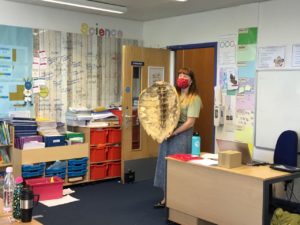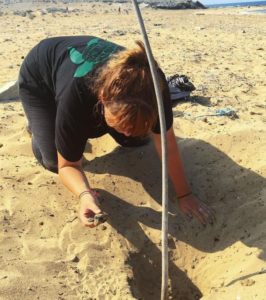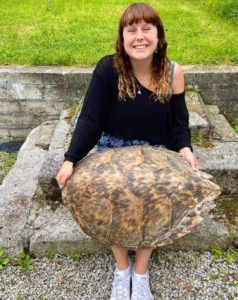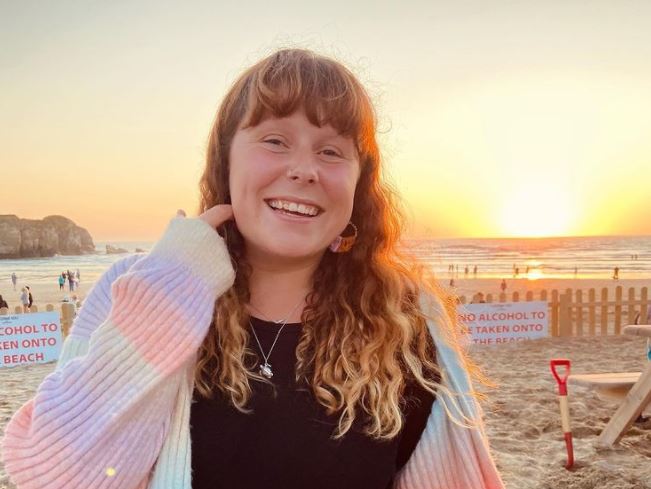We are looking back on some of our MSc graduates who have excelled in marine science around the world since studying with us. Today we meet Sian Woollard, MSc Marine Environmental Management graduate (2021) and now a Protected Sites Advisor for Natural England.

What did you enjoy most about studying at the University of Exeter?
I enjoyed all of the modules we had, the beautiful setting of living in Cornwall, and the opportunities (such as volunteering opportunities) whilst being a part of the University of Exeter.
What were the best aspects of studying your course?
I loved the lecturers, I felt I was always supported and looked after throughout my masters degree. I also really enjoyed my research project – it was so fun developing my own project and delivering it to different audiences, I found it so fulfilling.

What skills and experiences did you gain that will/have been useful for job/internship applications?
I believe my academic writing improved significantly throughout my masters and has definitely helped me secure my job since finishing at Exeter. Additionally, the knowledge gained is really useful and I’m able to apply that to different aspects, post-Masters.
Why did you choose to study at the University of Exeter?
The University of Exeter was one of the few universities that offered masters programmes that accepted students without a science background, which I needed as I studied English Language and Linguistics for my undergrad. I had previously worked on a project that is run in partnership with Exeter (SPOT) a turtle project based in Cyprus. It was there that I met different students at Exeter who all spoke positively of their experiences. Both of these reasons were huge influences in my decision.

Do you think there are any factors that make the University of Exeter a unique place to study?
The University of Exeter has excellent partnerships and collaborations with organisations worldwide, as well as world-leading experts in the field who lecture there. The opportunities for brilliant field trips too were a bonus – I think these reasons make the University of Exeter really unique.
What skills and experience have been most useful for your career? And how do you think your programme prepared you for your career/current role?
Learning about designated sites in the Protected Areas module have been the most useful for my career so far. Additionally, the project management aspect of my research project has really refined my timekeeping and improved my communication with different stakeholders.
Why did you choose this career?
Natural England are a brilliant organisation who are working towards protecting and improving more of the UK’s natural environments, which is a line of work I’m particularly interested in.
What advice would you give to a current student who wishes to pursue your career?
I got this job by sending out emails to people within Natural England just as I was finishing my masters. I would 100% recommend not only applying for roles that interest you but also sending out emails and contacting people within your organisation (even if it results in a job that’s not directly related to what you want), as this shows resilience and initiative.
What are your plans for the future?
Currently, I’m on a temporary contract with Natural England so I’m currently in the process of interviewing for a permanent position. If I get this, it means I can continue within this organisation, and if I am not successful this time I’m going to go back to searching for environmental education and outreach positions as that is my dream line of work.
What advice would you give to anyone thinking of applying to the University of Exeter?
If you’re unsure, I would contact lecturers beforehand and ask if you can chat about the course and the university, especially with things being so uncertain with lockdown, as this can help so much. Other than that, I would say to just go for it and have fun!


